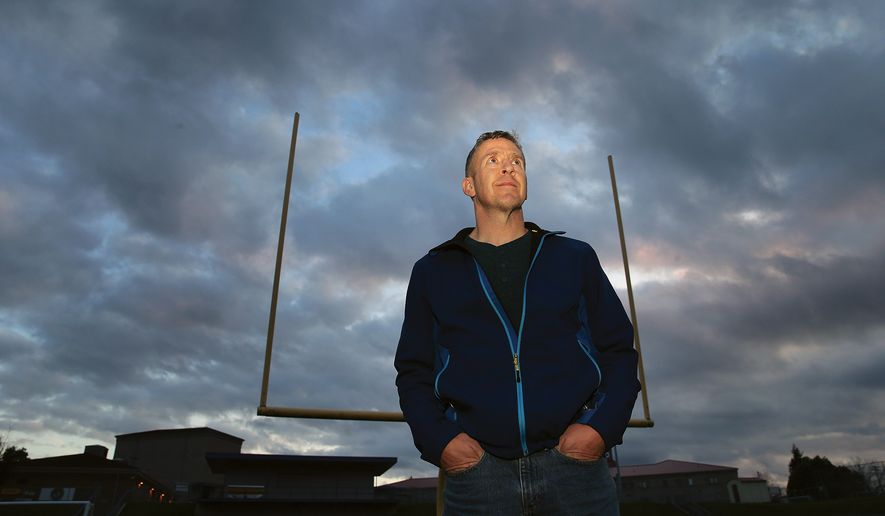The high school football coach who lost his job for praying on the 50-yard line after games will return to the field and the school in March, a federal judge ordered on Thursday.
The ruling comes after the Supreme Court said in June that the school violated coach Joseph Kennedy’s First Amendment rights.
“Bremerton School District cannot retaliate against or take any future adverse employment action against Kennedy,” District Judge Robert S. Lasnik wrote in the order.
According to the three-page order, Mr. Kennedy will return to the school March 15. His lawyers can file for attorneys’ fees from the district within 60 days.
A spokesperson for the school district said officials will comply with the court’s decision.
“The Bremerton School District will fully comply with the court’s order to treat Mr. Kennedy’s personal religious conduct the same way the district treats all other personal conduct by coaches at football games. The District remains steadfast in its commitment to respecting the rights and religious freedom of students, families, and school staff, and to keeping football games, and all school events, safe for the students we serve,” the spokesperson told The Washington Times.
Mr. Kennedy fought a seven-year legal battle to get his job back after being ousted for praying after the games.
The Supreme Court ruled 6-3 for the public high school coach, who was put on leave after he prayed. The court’s conservative majority said in Kennedy v. Bremerton School District that the government can’t punish someone for personal, private religious expression.
Justice Neil M. Gorsuch said Mr. Kennedy, who coached at a school in Bremerton, proved his postgame prayer was private and no students were forced to join him.
The school district had ousted him, saying his role as an employee and the public setting drifted too far into state sponsorship of religion, making some students and parents uncomfortable.
Justice Gorsuch said that wasn’t a good enough reason to trample Mr. Kennedy‘s First Amendment rights.
“The Constitution and the best of our traditions counsel mutual respect and tolerance, not censorship and suppression, for religious and nonreligious views alike,” he wrote for the majority.
Mr. Kennedy said he made a vow to God to pray for his students after each football game, starting in 2008.
He initially prayed alone, but he said some students took notice and asked whether they could join. He began to deliver motivational speeches with prayer, though he said he never coerced anyone to participate.
In 2015, his superintendent told him to stop the practice, saying he was violating the district’s religious activities policy.
After the admonishment, Mr. Kennedy began to conduct short, solo prayers at the end of games while the players were supposed to be doing something else. The school said that still was out of bounds, and Mr. Kennedy was suspended.
Mr. Kennedy moved to Florida after being fired but has said he would return to Bremerton, a town near Seattle, should he win his case.
“Thank God and thank everybody that supported me, and I found out that I’m not insane. It’s absolutely true of all the facts of the case, and it just feels good to know that the First Amendment is alive and well,” he said after his high court win.
• Stephen Dinan contributed to this report.
• Alex Swoyer can be reached at aswoyer@washingtontimes.com.




Please read our comment policy before commenting.